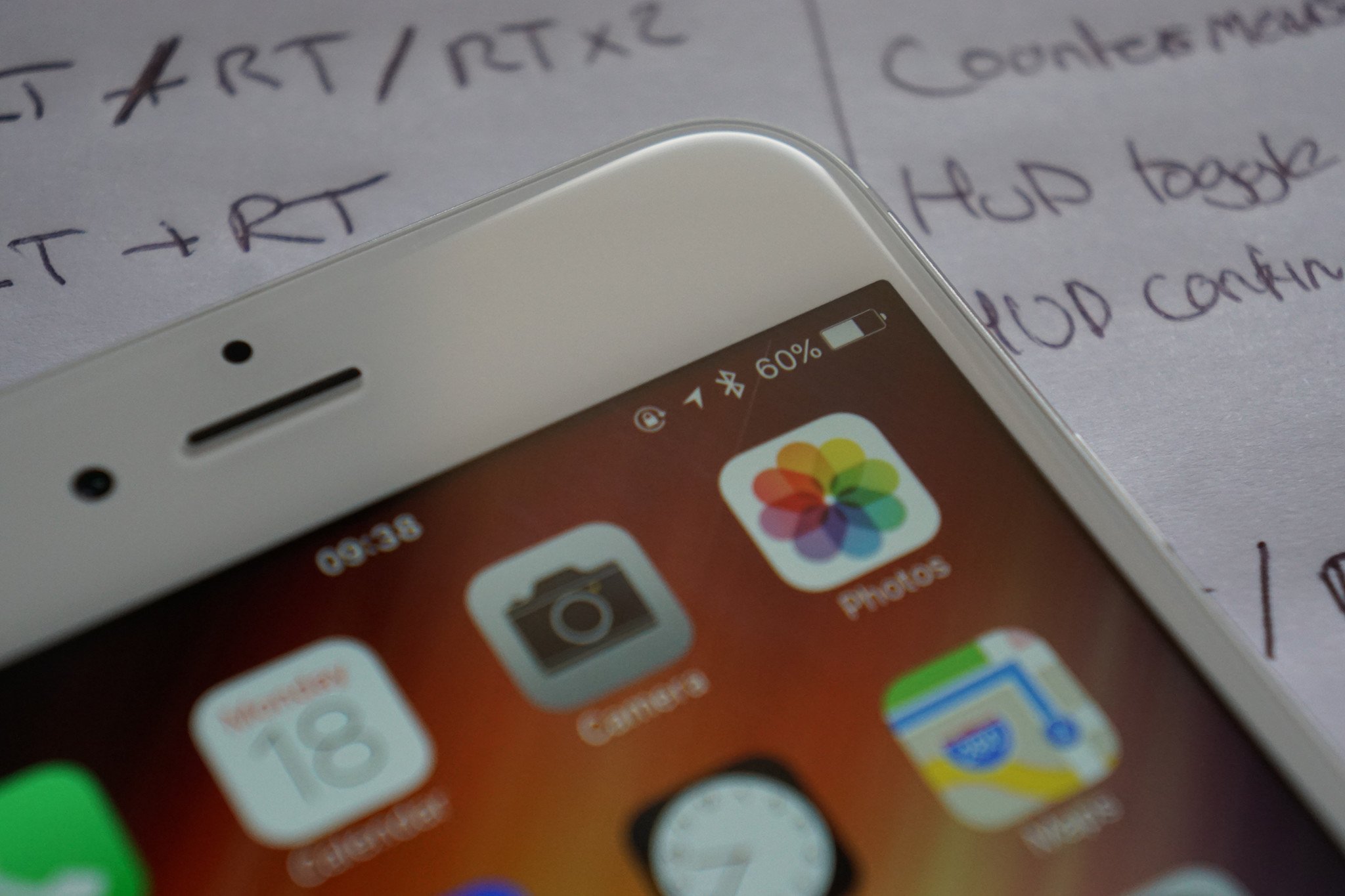Apple deliberately slows old iPhones! A story of good reasons and dumb, dumb messaging

Every fall, right around the time that Apple pushes out a major new iOS version and ramps up marketing for the year's new iPhone, I would go through my yearly ritual: fulfilling my duty as my friends' and family's go-to tech expert by explaining that "No, Apple doesn't slow down old iPhones to get you to buy the new one."
Except that as was recently brought to light, they do.
Egg on my face, courtesy of Cupertino.
Let's talk charge cycles
Of course, it is nowhere near that simple or diabolical. Apple is indeed slowing old iPhones. To be more accurate, they're slowing iPhones with worn out batteries, and they're doing it to preserve as much battery life as possible. If the phone's processor doesn't have to work as hard, then you'll be able to squeeze more life out of the battery.
It's actually pretty simple and understandable. The problem was that it was an entirely opaque process, one that users have been complaining about, Apple was aware of, and people like me unknowingly dismissed as unoptimized software or confirmation bias.
Lithium-ion batteries like those in the iPhone degrade. Every time you charge it and discharge it some capacity is lost. As with any manufactured product, there's an expected useful life, and in batteries that's measured in "cycles" (a full 100% to 0% and back to 100%). Many of us use our phones that way — we fill it up overnight, burn through it during the day, maybe top off a bit during a drive or at work, and then burn more electrons until we go to bed and plug in again. That constant use wears away at the battery's capacity.
Every time you charge an iPhone battery, a bit of its total capacity is lost. How should a phone cope with this?
For Apple's iPhones, they expect that the capacity will be at around 80% after 500 cycles (which is roughly two years for most users). There are steps you can take to prolong the longevity of your phone (avoiding heat, not charging too much or too little, etc), but those will cut into your productivity and enjoyment, which is the whole reason you bought it in the first place. Apple knows this (so does Samsung and LG and Google everybody else that makes lithium-ion-powered gadgets) and they've designed their devices to work within these restraints as best they can.
Master your iPhone in minutes
iMore offers spot-on advice and guidance from our team of experts, with decades of Apple device experience to lean on. Learn more with iMore!
Apple made a decision about what to do with an aging battery. Where a Samsung phone will just keep chugging along at full throttle, chewing through an ever-shrinking battery capacity, Apple made the conscious choice to slow iPhones with degraded batteries in order to prolong battery life.
It's an understandable choice, one you may have made yourself at some point. Your car's low on gas, you're on the highway, and there's a gas station ahead. If you keep plowing ahead at 70mph your fuel consumption rate will be too high and you'll run out of gas before you get there. But if you back off on the throttle, say down to 55mph, you'll make it to the gas station. Sure, it'll take you longer, but you won't be stranded on the side of the road.
That's the choice that Apple made. I understand it and I'm even nodding approvingly at it. It makes sense.
Communication is the key to a healthy and lasting relationship
Here's the problem: despite years and years of people complaining that their iPhone was frustratingly slower just two years after they'd bought it, Apple never explained what was happening. It took an in-depth technical analysis by an outside group to suss out that yes, iPhones were getting slower as they got older.
The explanation was perfectly benign. But it was thoroughly dumb that it wasn't explained up front. Of course, there are some people who wouldn't have been happy with it, but at least there wouldn't have been conspiracy theories about how Apple is building code into the latest iOS to force people to upgrade to a new iPhone.
Apple saw a problem and built code to fix it in a way that they thought would satisfy the most users (though for as sensitive as Apple is to things like frame rate, you'd think that they would have realized users would be just as sensitive to performance degradation).
Run the processor at full power and you'll run out of battery faster. That's a problem when your battery's not what it used to be.
Not disclosing this was dumb. Plain and simple, this was a dumb choice. To make it even dumber, Apple has long had the ability to let users know what's going on. They had to build the code to throttle the battery in the first place when the capacity has crossed that threshold, just as they built the code to dial back screen brightness and performance when the phone is overheating, which is accompanied by a notification the user has to dismiss if the overheating situation continues.
There's always an argument to be made about how much information needs to be exposed to the user. Some Android phone manufacturers can take this too far, and it detracts from the experience. Apple has almost always hedged on the side of "as little information as possible", and generally that's worked out just fine. Sure, the phone can be limited in what you can do compared to the potential Wild West of Android, but it's also an assurance that it generally will just work as designed and expected.
But communication is also massively important. The phone knows the battery is degrading. Heck, if your battery is in poor shape the iPhone will actually let you know... if you open Settings and then Battery.
That message actually does exist https://t.co/pWI3vYTIAR pic.twitter.com/thsgKeDLqqThat message actually does exist https://t.co/pWI3vYTIAR pic.twitter.com/thsgKeDLqq— taylor (@tayjn) December 20, 2017December 20, 2017
The right choice, the wrong words
Apple made the right decision, but only halfway. I agree that throttling back the processor to extend battery life was the right call. But they missed the next step, which is informing the user as to what is happening and what they can do to fix it with a simple notification.
An iPhone battery replacement at an Apple Store costs $79 and takes barely any time at all. You can probably find a third party that'll do it for cheaper and just as well. Putting in a new battery comes with a reset charge cycle counter and restores performance back to like-new — not to mention bringing back the battery life of a new phone as well.
This should've been so much simpler and easier. These are smart people. Why did this have to be so dumb?
Being more proactive on this front would've saved everybody a lot of grief. Users would've known what was going on and had an option to fix it for far less than the cost of a new iPhone, Apple would've been saved from embarrassing headlines like this one, and I wouldn't look like a fool.
Marketing is everything. Apple has long been a master of marketing — from 1984 to a thousand songs in your pocket to basically every iPhone commercial ever made — but their marketing prowess only shines in selling new products. To be fair, few companies are good at handling the communication of blunders or potentially controversial decisions (see Apple's dropping of the headphone jack on iPhones or Samsung's disastrous handling of the Galaxy Note 7 catching on fire), and hindsight is absolutely 20/20 on these issues.
Apple made a decision that they believed was in the best interests of their customers and kept it to themselves. Nobody likes being throttled, but we humans are far better and understanding marketing and connecting the dots we can see than understanding the technical inner workings of this magical rectangle we carry around every day.
It would've been an easy and customer-friendly fix: say what's happening, offer a battery upgrade, everybody knows what's going on. Instead those of us who should've known better are walking around with egg on our faces while trust in a company that does amazing work has been eroded because of bad communication around a smart decision. And that's just stupid.
Derek Kessler is Special Projects Manager for Mobile Nations. He's been writing about tech since 2009, has far more phones than is considered humane, still carries a torch for Palm, and got a Tesla because it was the biggest gadget he could find. You can follow him on Twitter at @derekakessler.

